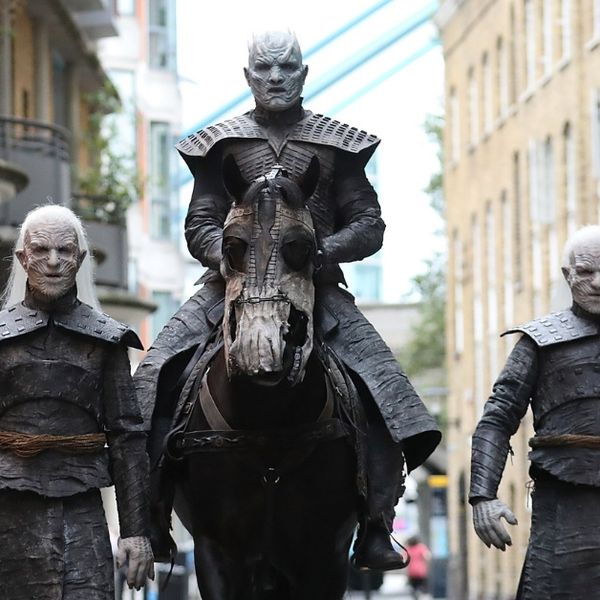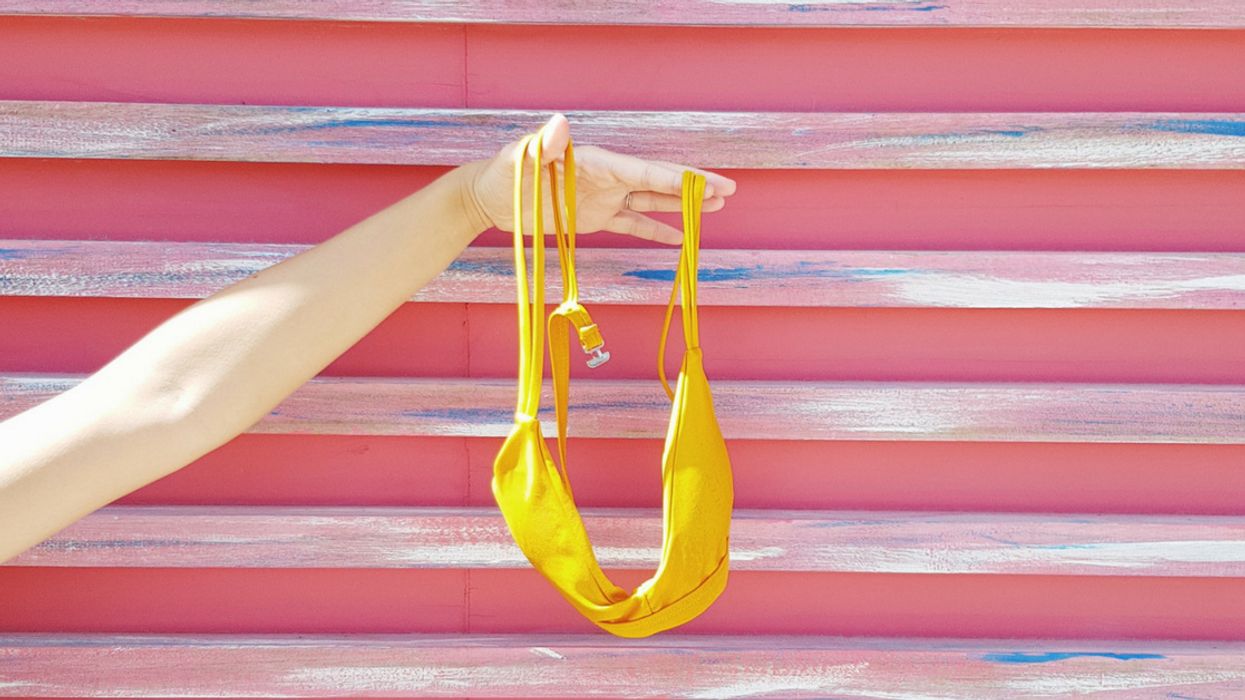July, 2004, LOS ANGELES - My travel schedule in July had me covering about a quarter of this planet from Tokyo, Japan, to the east coast cities of Washington DC, New York, and Boston and finishing up the month at a Star Trek convention in a blazingly hot Las Vegas, Nevada.
The most personally affecting journey, however, was my first trip of the month during the Fourth of July weekend. On that holiday weekend when we Americans celebrate our liberty and freedom, I joined a pilgrimage to a former U.S. internment camp where my family and I, together with 18,000 other Japanese Americans, were imprisoned during World War II.

The camp is in northern California, almost at the Oregon border. It has an almost mockingly poetic name, Camp Tule Lake. It was there in a barbed wire camp built on a wind-swept dry lake bed that I spent two and a half years of my boyhood after a year and a half in another internment camp in Arkansas.
The pilgrimage was made up of bus caravans that came from Sacramento, San Francisco, San Jose, Oakland and Berkeley, California. We, from Los Angeles, joined the one from Sacramento. On the buses were survivors of the internment, most of them elderly now, young Japanese Americans intent on understanding the experience of their grandparents and parents, scholars of the internment, both white and Asian, a few filmmakers and one or two African Americans. It was a good spectrum of the nation on a journey back to a dark chapter of American history. This was my second pilgrimage to Tule Lake. Eight years ago, in 1996, I made my first journey back since our family was released from that camp exactly fifty years before. That pilgrimage was also on a Fourth of July weekend. The symbolism was irresistible.

The tar paper barracks that we lived in are all gone now - long removed or destroyed by time. With the guidance of an authority, I retraced a dirt road to an area where our barrack once must have been. I recognized the view of Abalone Mountain and Castle Rock from that barren site. This must have been where my home was, so long ago. The mountains were the only landmark I was able to remember. One of the few remaining structures from the camp was the concrete stockade, a jail within an internment camp. These pilgrimages back to a little remembered time in our history help enlarge my appreciation of the preciousness of our American liberty and my awareness of its fragility. They also deepen my understanding of the painful human price paid by such failures of our democracy.

The most poignant part of the pilgrimage was the memorial service held at the old cemetery site for those who died during their incarceration. Tribute was paid to those who passed in all 10 internment camps with candles lit by representatives from each of the camps. I was honored to represent Camp Rohwer in Arkansas, where my family and I were held before being brought to Camp Tule Lake. As we paid our respects to those who passed in these camps during World War II, my thoughts were also with those Arab Americans today who are being detained without the due process to which we are all entitled. I resolved as an American to work to ensure that the fundamental ideals of this nation shall prevail over today's challenges of terrorism.
The most joyous part of the pilgrimage was a cultural program held in the newly restored Art Deco movie theater in the nearby town of Klamath Falls, Oregon. The performers were former internees and their descendants. The audience was made up of those on the pilgrimage and the people of the town of Klamath Falls. I served as the master of ceremony as well as a reader of a poem written by a former internee/poet. There were musical acts, dramatic readings, and dance performances. About a thousand people - former internees and those on the pilgrimage shared a happy evening of cultural performances with the town folks of a rural southern Oregon community. The applause after each act was loud and appreciative. It was, to me, the sweet sound of a healed nation and the true spirit of America.

The trip to Tokyo was to promote the fall release in Japan of the DVD version of the original Star Trek television series. The promotional campaign involved back-to-back series of print, television, and radio interviews culminating in a massive public event in a chamber hall of the central Tokyo Railway Station. Fans from throughout Japan gathered, many in Starfleet uniforms, others in USS Excelsior T-shirts, to celebrate a unique Star Trek event. The master of ceremonies was a hyper-animated Japanese comedian in Starfleet uniform accompanied by a bevy of lovely young girls dressed as Starfleet yeomen. The applause when I was introduced was thunderous. It was an extraordinary sensation to be talking in Japanese about a television series on which I had worked almost forty years ago in Hollywood to young fans in Japan, many of whom had not yet been born at the time.

The enthusiasm, the devotion, and the love I felt from them were as real and as palpable as that from fans in North America, South America or Europe. What made this so special was the fact that this event was in the country from which my grandparents came to America about one hundred years ago. Never in their wildest imagination could they have dreamed that their grandson would be so affectionately received as an actor in this, my ancestral land. What an amazing world we live in! And what an astonishing global phenomenon Star Trek has become.

The trips to the East Coast cities were a combination of business and pleasure. Washington DC was for a meeting of a task force on which I have been asked to serve. New York is always my destination for great theater and excitement as well as the nerve center of work and business. After the business part of my mission was completed, it was theater every evening. The most impressive drama I caught was Arthur Miller's "After The Fall" starring Peter Krause from the television series, "Six Feet Under." Krause was fine but the most striking performance in the play was that of Carla Gugino in the role inspired by Marilyn Monroe. Her characterization of an insecure woman, initially charming and poignantly eager to please, who, with power, grows into a terrifying monster, was commanding.
The most stirring musical was award winning playwright, Tony Kushner's "Caroline, or Change." I'm amazed by this artist who blew me away with "Angels in America" and now transported me musically to his native Louisiana in the 50's with a heartrending story of the relationship of a black housekeeper and a young Jewish boy, the son of her employer. Tonya Pinkins' performance as Caroline was soulfully moving. Other shows I caught were "Wonderful Town," "Sly Fox" with Richard Dreyfus and gifted Rene' Auberjonois in a hilariously delightful characterization, and "Frogs," starring Nathan Lane. I always leave New York feeling so enriched.
Changing to my political hat, I flew to Boston for the Democratic National Convention. I was not a delegate this year, but I served as the master of ceremony for one of the after parties. I thought it was a terrific convention. The speeches were stirring, former President Bill Clinton was masterful, and Senator John Kerry gave the best speech I had heard him make. We need a strong leader who can truly lead in a complex and diverse world; one who can address the historic deficit that this nation has been plunged into and create genuine jobs for working Americans. As you might guess, I am a Democrat and I have great feelings in my bones that we will elect a new president in November - President John Kerry.
The final trip of the month was to Las Vegas and a Star Trek convention. How comfortable these conventions have become! After all the hurly burly of the many trips, even with a slight jet-lag fog, I can still function easily surrounded by understanding and loving fans. I can get the names of familiar faces mixed up and still get a forgiving hug. I can growl out that old coal miners' song, "Sixteen Tons" and still get standing ovations. What terrific people fans are! I love the fans and I love these conventions that are like massive family reunions. July was a full, hectic and enriching month and how wonderful it is to recover and relax with fans at a Star Trek convention.
Woman Was Fired For Refusing To Wear A Bra At Work—And Now She's Suing
Christina Schell, from Alberta, Canada, stopped wearing bras three years ago citing health reasons.
While Schell did not specify the health reasons, she did state she finds them to be "horrible."
But after her refusal to sign or adhere to a new enforced dress code policy to wear a bra or tank top under her work shirt at a golf course grill where she worked, Schell was promptly fired.
Now, the 25-year-old has filed a human rights violation against the Osoyoos Golf Club, Osoyoos, in British Columbia, Canada.
Schell said:
"I don't think any other human being should be able to dictate another person's undergarments."
When she asked the general manager, Doug Robb, why she had to comply, the manager told her the mandate was for her protection.
Robb allegedly said:
"I know what happens in golf clubs when alcohol's involved."
After losing her job, she brought the case to the British Columbia Human Rights Tribunal and told them the club's dress code was discriminatory because the rule didn't apply towards male employees.
Schell told CBC:
"It's gender-based and that's why it's a human rights issue. I have nipples and so do the men."
David Brown, an employment lawyer in Kelowna, BC, said gender-specific dress codes could be viewed as discriminatory under the BC Human Rights Code.
He stated:
"It's an interesting question as to whether or not an employer can dictate the underwear that women can wear, but they don't say anything about the underwear that men can wear, and does that create an adverse impact on the individual?"
Brown added:
"If this policy is found to be discrimination, the next question is does the employer have a bonafide occupational requirement to essentially impose this on the individual?"
"I'm kind of scratching my head as to what that occupational requirement would be."
@GlobalBC The policy is sexist the peopl supporting it are sexist. Hope she wins her complaint— Lori bell (@Lori bell) 1529692660.0
@Shelby_Thom @WoodfordCHNL @GlobalOkanagan @GlobalBC Then men should have to wear either a tank top or undershirt— caffene fiend (@caffene fiend) 1529624161.0
@SoldByBrock @Shelby_Thom @GlobalOkanagan @GlobalBC What does common courtesy have to do with wearing a bra? Breast… https://t.co/ZVI2xDdpgf— M Shumway (@M Shumway) 1529843759.0
As for the tank top option, due to working under oftentimes extreme heat serving tables outsides, Schell did not want to wear another layer of clothes just because of her gender.
Schell said:
"It was absurd. Why do you get to dictate what's underneath my clothes?"
Employment lawyer Nadia Zaman told CBC that the club can enforce a gender-specific policy as they deem necessary as long as the establishment can prove it is for the occupational safety of its workers.
But the attorney questioned if forcing female employees to wear a bra was applicable in this case.
Zaman stated:
"If they simply require that female employees wear a bra but then they don't have a similar requirement for males, and they can't really justify that … then there is a risk that their policy's going to be deemed to be discriminatory."
Under British Columbia's discrimination law, it is illegal for employers:
'to discriminate against any individual because of his race, color, religion, sex, or national origin'.
@GlobalBC @globalnews Logistically bras or the absence of does not impact health or work performance. That is my v… https://t.co/65cLHBMowf— Louisette Lanteigne (@Louisette Lanteigne) 1529769211.0
McDonald's employee Kate Gosek, 19, agrees with Schell in that the dress code is "unnecessary." She too was harassed by her employers at a McDonald's in Selkirk, Manitoba, over refusing to wear a bra.
"She just told me that I should put on a bra because, McDonald's—we are a polite restaurant and no one needs to see that."
Schell's case sparked plenty of debates on Twitter.
@DunnMan77 @GlobalBC It's just discriminatory, woman shouldn't have to wear bras if they don't want to. As well as… https://t.co/RXhRVWUuNy— Mary Johnson (@Mary Johnson) 1529685276.0
@DunnMan77 @GlobalBC Men do not have to wear underpants if they don't want to. As of right now there are no laws to… https://t.co/l8FuPVybWo— Mary Johnson (@Mary Johnson) 1529686418.0
@GlobalBC Women have the right not to be forced to wear a bra Shaving & makeup also is a choice. If you want to do… https://t.co/Ybkj6PLDnD— Lozan (@Lozan) 1529686156.0
@Lozan72 @GlobalBC I would completely understand her and your argument if we were talking about a potential law to… https://t.co/trRyNAubn4— Chris George (@Chris George) 1529690293.0
@GlobalBC This story frustrates me. There's no dress code equivalent for men? Well if I saw the outline of a male s… https://t.co/5YbAvXKRcO— Molly Max (@Molly Max) 1529705327.0
Schell is not alone in her disdain for bras.
@GlobalBC I personally HATE wearing a #bra absolutely hate it with passion and unashamed to admit it. I HATE BEING… https://t.co/GEi3LtxIDa— Lozan (@Lozan) 1529686305.0
Schell is still waiting to hear from the Human Rights Commission about her claim.
H/T - GettyImages, Twitter, Indy100, CBC












